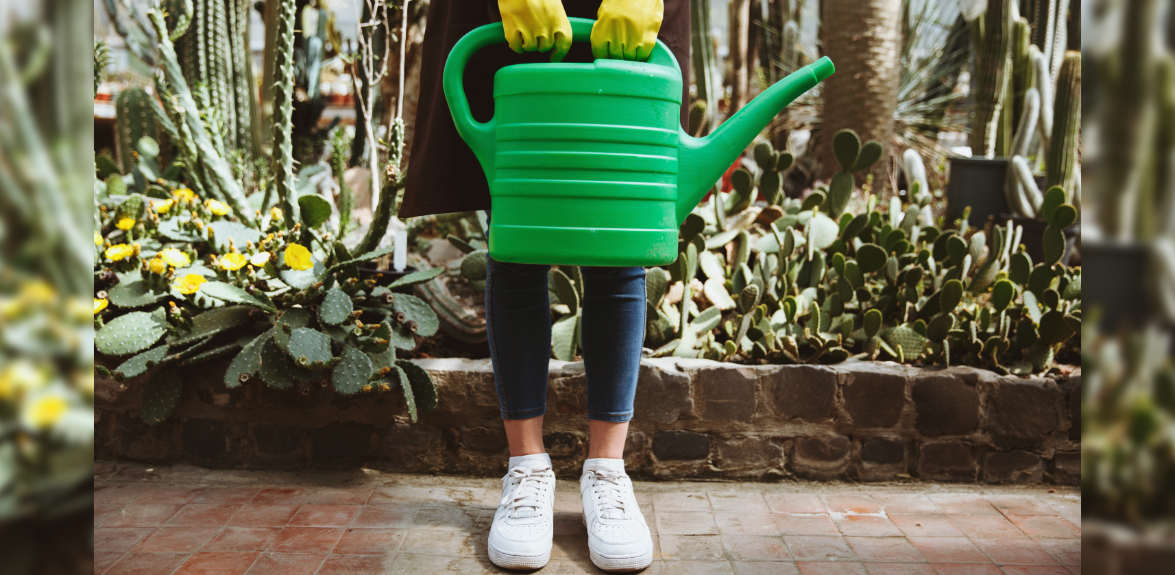At Home
Five Organic Solutions to Pest Control
By Heidi Wagg
Chemical pesticides pose a potential threat on the natural environment. Luckily, you can minimize the risk by using earth-friendly alternatives in the garden and yard.
Here are five tested and true organic solutions to try your hand in.
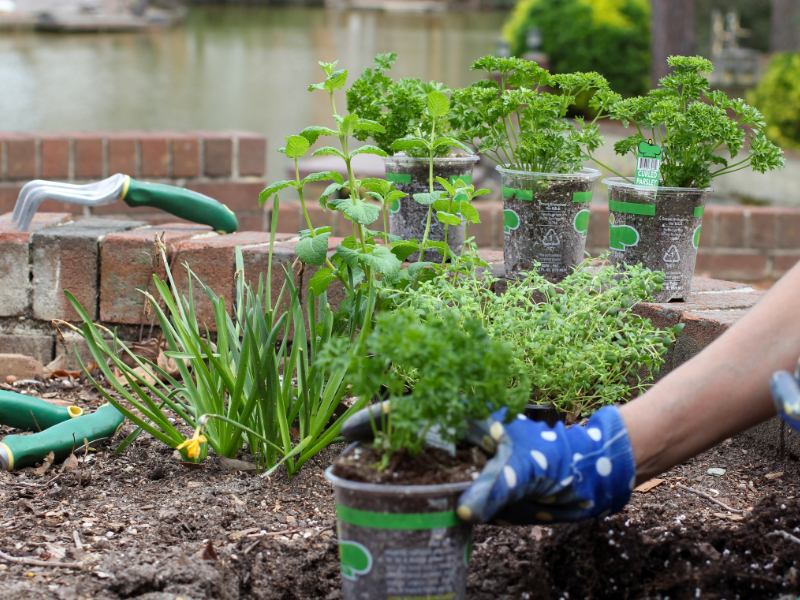
Companion Planting
Companion planting is the deliberate grouping of plants intended to improve garden conditions and plant growth. For instance, positioning certain bio-chemically releasing plants in close proximity to target plants can effectively ward off insects. Examples include:
- Garlic wards off aphids.
- Catmint, pennyroyal and tansy are aromatic plants that repel ants.
- Basil deters aphids, fruit flies and whiteflies.
- Carrots deter the onion fly, while onions deter the carrot fly.
- French and calendula marigold roots ward off nematodes from roses, tomatoes and potatoes.
- Mint, thyme, chamomile, dill, rosemary, sage and other strong scented herbs prevent cabbage butterflies from laying eggs on brussel sprouts, broccoli, cabbage and other vegetables.
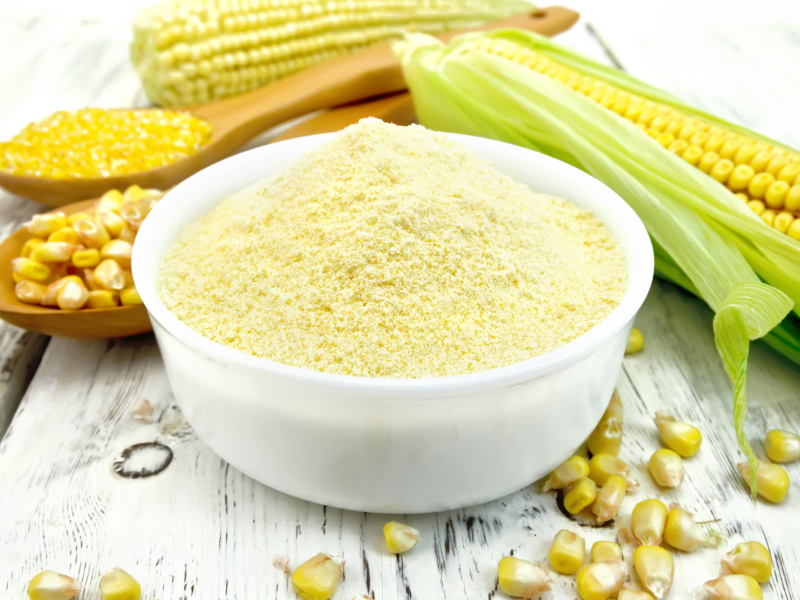
Corn Gluten Meal
Corn gluten meal is a by-product of corn processing, which acts as a natural herbicide in turf weeds. (It is also an effective fertilizer being high in protein and containing ten percent nitrogen).
Corn gluten meal prevents seeds from developing normal roots by making them vulnerable to dehydration when the soil becomes dry.
To work effectively, apply in early spring (about two weeks before crocuses and tulips are blooming) when weed seeds begin to sprout.
Apply the granulated form of the meal with a spreader; the pelletized form can be distributed by hand.
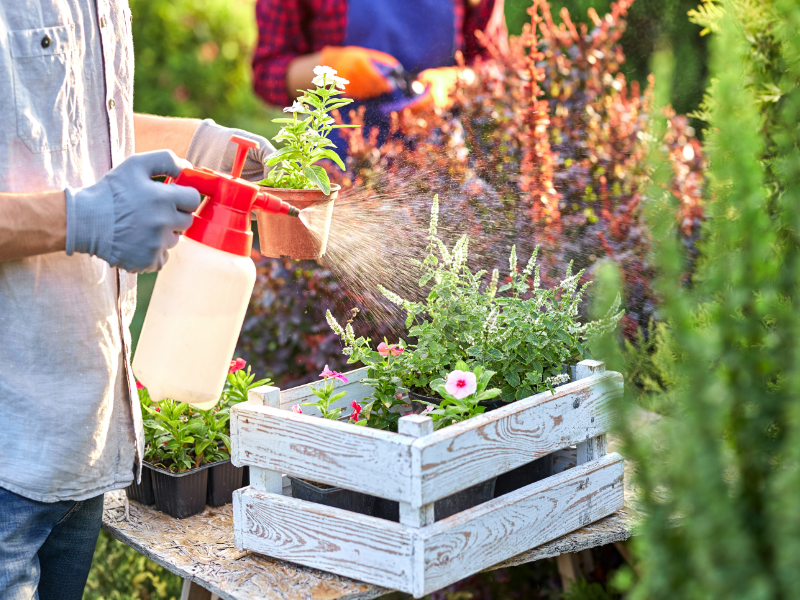
Horticulture Oil
Horticulture oil is a complex mixture of hydrocarbons used to kill garden pests, such as aphids, caterpillar eggs, leafhoppers, mites, thrips, whiteflies and mealybugs.
When mixed with water and applied onto foliage, the oil suffocates insects or disturbs their feeding.
Various horticulture oils are available with different applications. For example, ‘dormant oil’ is used throughout the dormant season, while ‘summer oil’ is used when foliage is present on plants

Household Vinegar (5% acetic acid solution)
Vinegar helps to stamp out young, tender weeds. Spray directly on plant. To be effective, it may require several applications.
Being an acid, vinegar may slightly decrease the soil’s pH. This is a short-lived effect as acetic acid breaks down rapidly in water. Any vinegar residue should disappear after the next watering or rain.
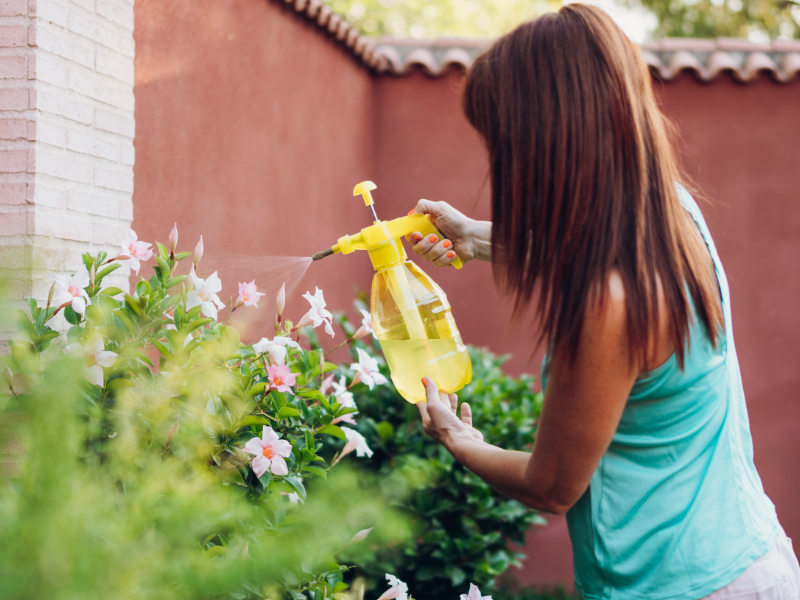
Insecticidal Soap
By removing an insect’s top protective layer and disturbing normal membrane functions, insecticidal soaps effectively destroy soft-shelled pests, including aphids, trips, spider mites, whiteflies and mealybugs.
You can buy insecticidal soap or make your own recipe. Just mix a couple teaspoons of household soft soap with a quart of water, place it in a squirt bottle and spray.
For additional resources visit the Health Canada website here.


